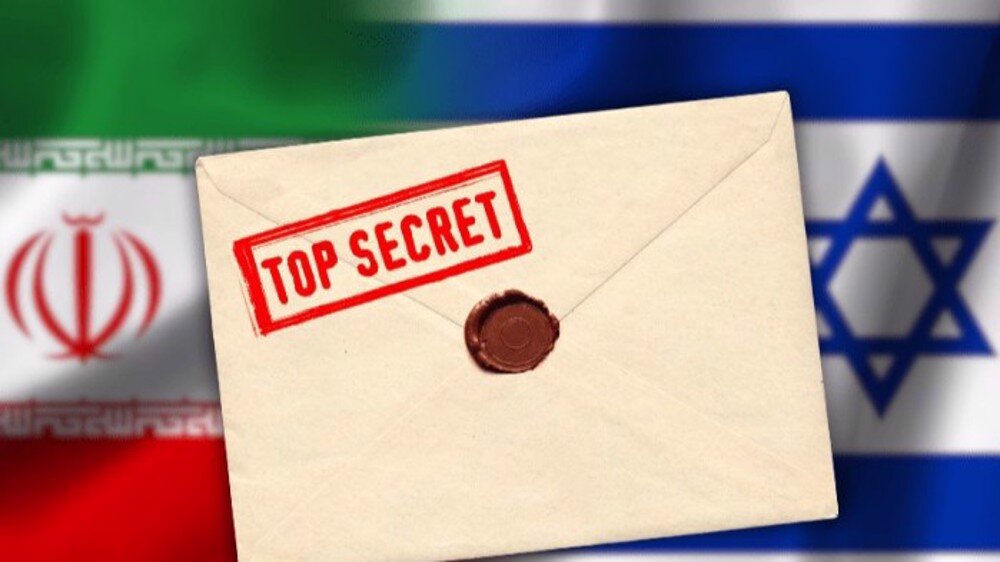MADRID – Iran on Saturday announced it had extracted a huge number of confidential documents and information related to the Israeli regime. Tehran has yet to provide conclusive evidence or technical details regarding the full scope of the operation, but the announcement gives a focus on one of the region’s most strategically important rivals.
Over the past decade, competition in Iran and Israel’s intelligence report and security issues has intensified, making it one of the most unstable and decisive aspects of the region. This conflict, rarely openly expressed, appears through secret operations, cyber attacks, and secret attacks aimed at breaching and undermining critical enemy infrastructure. Incidents such as the assassination of prominent Iranian nuclear scientist Mohsen Faklizadeh and repeated cyberattacks on Israeli infrastructure demonstrate the complexity and sophistication of this quiet war.
Recent Iranian disclosures arrive in a tense and highly sensitive background. Just a few weeks ago, Israeli internal security service Singh Bett, along with Israeli police, announced the arrest of two young Israeli citizens, Roy Mizrahi and Almog Atias, aged 24, a resident of Nesher in the northern region. Both were accused of officially cooperating with Iran. Israeli authorities have not confirmed a direct link to mass leaks of documents, but the timing of these events cannot be overlooked.
According to official Israeli sources, the tests were kept strictly confidential to avoid breach of anti-intellectual manipulation. It is speculated that the arrest occurred after sensitive information was moved from an area where it was already occupied. This could represent a major blow to Israeli security services and indicate much deeper penetration into the civil or military equipment of the regime, much deeper than previously recognized.
Sources familiar with the issues that spoke to Iranian radio and television news agencies said the amount of documents extracted is so extensive that it will take weeks, if not weeks, to review and analyze them. Additionally, it was announced that a portion of this material will be published once the preliminary study is completed. This step is common in interstate intelligence reporting disputes, and will help both put international pressure on the enemy and showcase Iran’s strategic espionage capabilities.
Context of expansion of espionage and the vulnerability of Israel
The arrests and charges of Iranian spying in Israel have been in the news of recurring news in recent months. Singh Bett confirmed a 400% increase in arrests related to pro-Iranian spying in 2024. This reflects not only doubts of an increase in Tehran’s operations, but also the apparent internal vulnerability of the Israeli regime.
This surge has sparked deep concern within Israel, where Iran’s penetration could lead to actions that have a major impact on the survival of the regime. Recently, the detention of two Israeli military reserves accused of cooperation with Iran has been reported. One of them was assigned to a missile defense system known as the “Iron Dome,” the cornerstone of Israeli military shields. Politician Ehud Yatom describes this as the most serious case of spying in months, highlighting the troublesome depth of Iran’s penetration into Israeli defensive structures.
Yatom himself warned that Iran’s success in invading the Iron Dome would raise major questions about the military security of the Zionist state. Meanwhile, Israeli media like Walla have reported, citing security sources, that Iran is actively adopting spies within Israel, and that Israeli citizens are willing to betray their financial interests.
Former Singh Bet staff member Shalom Ben Hannan described the phenomenon as a serious and dangerous issue, pointing to an increase in Israelis who are consciously and willing to accept cooperation with Iran through spies, intelligence newsletters or obstruction programs. This reality reflects the deep fractures of Israel’s social fabric.
Why do Israelis spy on Iran?
The root of this phenomenon is growing social divisions within Israel and the occupied territory. Israel’s population is primarily composed of settlers of diverse origins who do not share a powerful cultural, religious or historical common foundation. This prevents the formation of cohesive “national” feelings, and instead personal and fragmented interests win.
Furthermore, tensions and conflicts between major social groups, particularly between the secular sector and the ultra-orthodox (Hardim), weaken the space for invasion and recruitment by foreign powers such as Iran, weaken the agglomerated Israeli identity, and create polarizations that open up spaces to open spaces.
Systematic discrimination against minorities and ethnic groups within Israel also encourages frustration and motivation to work with external enemies. At the same time, the Israeli economic crisis, exacerbated by Netanyahu’s reign and the effects of the military operation “Operation Al-Aqsa Storm”, exacerbated living conditions and increased social dissatisfaction.
Contrary to the official propaganda of prosperity, Israel’s economic reality is characterized by increasing inequality and difficulties. According to Israeli media reports, political, social and economic dissatisfaction has driven a surge in the recruitment of foreign intelligence reporting agencies, including Iran.
Over 600 cases of Iranian spy have been reported in recent months, including intelligence gathering in military and safe environments, highlighting the scale and scope of this penetration.
Strategic change and long-term challenges
International organizations such as Reuters have highlighted growing Israeli concerns over the growing influence of Iran within its internal structure. The arrests of around 30 mostly Jewish citizens, accused of belonging to nine secret cells dedicated to Iranian spying, represent Tehran’s biggest infiltrating venture over decades within the Israeli regime.
Furthermore, Israel has shown an increase in vulnerability to cyberattacks and loss of important confidential information. Media Outlet Intelligence noted that Iran is actively working to recruit spies within occupied territory and implement an offensive intelligence news program.
This rise in pro-Iranian spying not only represents a security challenge, but also exposes the internal collapse of the Israeli regime, revealing political, social and economic weaknesses. Israel accussed Iran of trying to invade, but the reality shows that these penetrations are symptomatic of a deep structural crisis within Israeli society and its institutions.

